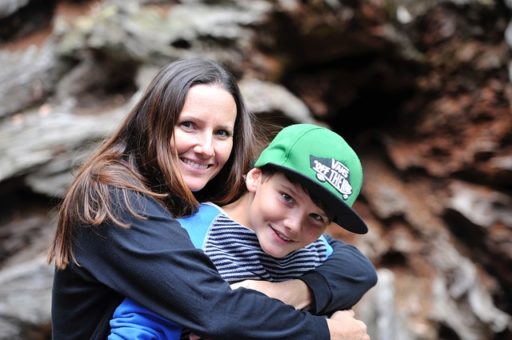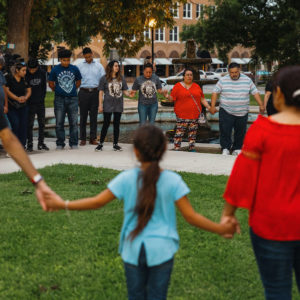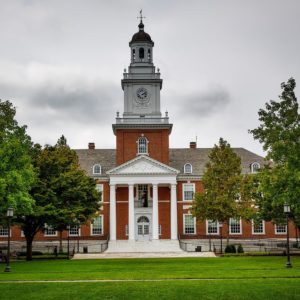In early Advent, I wake to Peter kneeling on our bedroom floor, three arm’s lengths away, gazing in the dark at me in the bed where I sleep beside his father.
I wake facing him and come to quickly but transposed—not unlike the night when, in a life so former as to seem impossible, I woke on a work trip in the darkness of a Maputo high-rise hotel, my jetlagged brain dredging through days and time to say I was again a child in my first bedroom, listing toward the even, sleeping breaths of my little sister. Her absence woke me to the impersonal room, the hiss of seawinds at the window, the plink of consciousness fitting to the skin.
In the night, Peter’s face hangs just beyond the bedside like a peculiar icon, astute and silent but out of place. He looks at me; I look at him. I know I see a gangly child, and in a few long, shallow breaths I recognize the wells of his eyes and the trapezoid of his fifteen-year-old jaw, his messy curls backlit with moonlight through the study’s westward window.
I am not sure if he can see me seeing him, his face and torso erect and still. One of his hands reaches down to pet the new, prized gray kitten—an early Christmas present—that must have nosed its way into our room in the night. The kitten flops back and forth, nipping at his fingers. He pets its belly for a while and then scoops it up, cradles it in his arms, and walks silently out of the room, easing the door shut.
I lie in the dark staring at the door, wondering that he might have watched me without me ever knowing. Then I go back to sleep, and in the morning I know I am a mother: not due to any bond, but to the secret watching, the quiet humor of the breach. We have lived in the same house for several months, yes. But you have to have some hope of someone’s love, some brash and warm curiosity, to watch them while they sleep.
“You are not their mother,” my godmother Shatzi says, as she has from the very moment—a scant year ago—that I became engaged to their father, a widower with eight children: three grown, three at home, two back-and-forth in university. It is quarantine winter—gray Virginia here, icy Quebec there. “They have a mother, and it’s not you,” she says again, and a burble of distortion pixelates her voice on the phone. She loves me and I know what she means: detachment.
It is almost Christmas. Surely the children are remembering how they slept around their mother’s bed that last Advent of her life, the tenuous weeks before she died.
I am not their mother, but in the rush of a grocery store or a gas station, the clerk puzzled by my accompanying tribe, I toss off the shorthand of stepmother—a word I never use now. For a few faceless customer service functionaries, I duck into the laundry room and whisper into the phone that I am their mother, to avoid the hassle of faxing my civil marriage certificate to the Philippines or Nebraska or the moon. To the new neighbors, I say I am their father’s wife. It leaves a gap, but fits best.
The boys lug boxes of decorations down from the attic and the house fills up: a favorite, crushed wire-bristle wreath, plaster medallions and popsicle angels, rounds of mismatched Christmas stockings. They say mom again and again.
At the end of my suffering / there was a door. / Hear me out: that which you call death / I remember. I read Louise Glück’s “Wild Iris” in bed one night, going up early, giving everyone a break. I will dream this week about the child I lost years ago, just weeks before the springtime birth of my husband’s twelve-year-old son. As I miscarried, a nurse counted back to an Advent conception. For this anniversary my child and his father come to me and I see my son has a shock of black hair. I wake up crying in the night and surprised; thank God Peter isn’t at the bedside, crouched and gazing again. I have grieved. When I am awake and think of my child, I am glad. But somehow when I dream of him, there are still tears.
I am not their mother, but I make dinner, clean the kitchen and sort the winter gloves, scour the internet and the real world for the presents they want. The last is a human task that appeases, fulfills a certain longing. In the living room, the visiting older girls read and study by the fire; the youngest boy hovers and delays his homework, hoards the kitten and moans his school woes to them, not me. I am not their mother, but I am sad for a moment to lose that.
It is terrible to survive / as consciousness / buried in the dark earth, the poem says. This is true. Even when you are not the one who dies, you are buried. I remember this. And you have to choose to get up out of the ground. Their mother is by the door: remembered in a graphite drawing by an artist friend. Her portrait hung here for years, and when we married it seemed right to keep it up. I nod to her as I pass her, surrounded by her children’s framed school pictures. They are watching me but they belong to her; they need to know her gaze, her love. I don’t begrudge her this. I just want to know who I am.
You who do not remember / passage from the other world / I tell you I could speak again: whatever / returns from oblivion returns to find a voice. The oldest girl asks to make her mother’s sugar cookies together, and we do. The youngest boy asks for me to decorate the cookies with him, and we do. The tree is denuded, the angel and a whole box of ornaments strangely lost, and the oldest boy at home hangs a box-full of candy-canes on its spindly limbs. Sometimes when I wake in the master bedroom and get up to stumble through the pillows I’ve tossed to the floor, I imagine the children in their last vigil, the humidity and heat of sleeping bodies, their breath’s stippled chorus.
“You just want to forget mom,” one of the boys yells one night as we are sitting down to dinner. I am shuffling back and forth from the kitchen to the table; I step aside so my husband can console him. He hurts the most and it hurts that I cannot help him—except to be silent, give him his father, and ask God, let him get up someday so it may be true for him too: from the center of my life came / a great fountain, deep blue / shadows on azure seawater.
Laura Bramon Hassan is a writer and international development practitioner based in Washington, DC. Her writing has appeared in The Best Creative Non-Fiction, Vol. 3 (W.W. Norton), Image, University of Notre Dame’s Church Life Journal, First Things online, Humanum Review, and other outlets.





